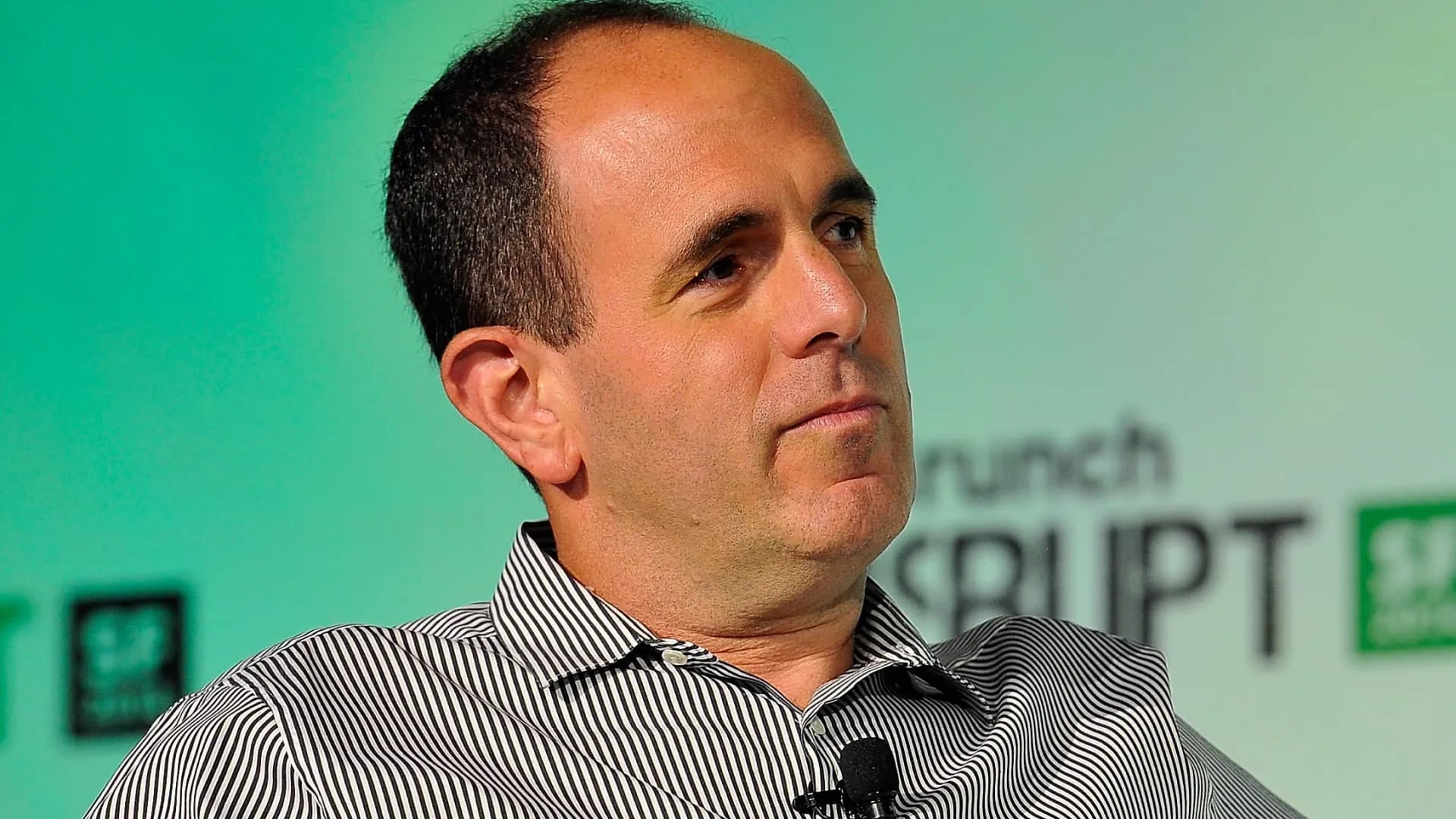
OpenStore's Major Shift: The Fall of an E-Commerce Titan and Its Sole Focus on Jack Archer
Table of Contents
- Key Highlights:
- Introduction
- The Rise of OpenStore
- The Decline of E-Commerce Aggregators
- Focus Shift: The Decision to Streamline
- The Impact of Internal Changes
- The Role of Venture Capital
- The Future of E-Commerce Aggregation
Key Highlights:
- OpenStore, its valuation plummeting from $1 billion to $50 million, is shutting down operations for most of its brands, focusing only on the menswear brand Jack Archer.
- The e-commerce aggregator sector, buoyed during the pandemic, has faced severe setbacks, leading to mass layoffs and business closures.
- Keith Rabois, a well-known venture capitalist, sees the restructuring as a chance to refine and reinvigorate his business focus.
Introduction
The e-commerce landscape has undergone extraordinary transformations in recent years, particularly with the rise—and subsequent decline—of e-commerce aggregators. A stark illustration of this trend is OpenStore, co-founded by venture capitalist Keith Rabois in 2021. Once ambitious about its growth prospects, the company is now reeling from financial woes, announcing an all but complete shutdown of its over 40 Shopify stores. This drastic decision follows a massive decline in its market valuation and a shift towards singular focus on the menswear brand Jack Archer. As the e-commerce sector grapples with a cooling demand and infrastructural challenges, OpenStore’s fate serves as a cautionary tale for investors and entrepreneurs alike.
The Rise of OpenStore
Founded in 2021, OpenStore embarked on an ambitious venture aimed at acquiring diverse, independent brands within the e-commerce space. Leveraging a model that capitalized on low interest rates and the pandemic-driven shift towards online shopping, OpenStore amassed over 40 brands ranging from beauty products to household goods. The goal was to streamline operations and maximize profitability by aggregating resources.
Keith Rabois, who co-founded the startup, was a prominent supporter of the venture and actively promoted its mission on social media. Recognized for his influential positions in various technology companies and venture capital, Rabois projected confidence in OpenStore's capacity to make acquisitions rapidly, claiming they could handle acquiring a business in just one day, and ambitious plans included aiming for an acquisition every hour.
However, as the markets shifted post-pandemic, the strength of this ambitious model began to unravel.
The Decline of E-Commerce Aggregators
The downfall of OpenStore is emblematic of a broader crisis within the e-commerce aggregator market. Once viewed as a golden opportunity to consolidate small online retailers amid booming internet shopping, the landscape has dramatically changed. By 2022, as consumer habits shifted back towards physical retail, many aggregators began to struggle with profitability. The influx of venture capital had initially masked underlying issues, but as interest rates rose and funding dried up, cracks began to appear.
Top aggregators like Thrasio faced severe operational challenges, leading to layoffs and, ultimately, bankruptcy. As the news of financial instability spread, many aggregators were left grappling with underperforming brands and the growing costs of digital marketing and customer acquisition.
Financial Turmoil at OpenStore
OpenStore's recent efforts to secure a $15 million funding round only underscored its plummeting fortunes, bringing its valuation down to a disheartening $50 million. Having once enjoyed a valuation of $1 billion, this rapid descent reveals the instability within the aggregator market and raises questions about the future of such business models.
An internal review indicated that many of OpenStore's brands could not compete effectively and required expensive digital marketing strategies to generate sales. Consequently, the company paused new acquisitions and began to downsell existing assets to manage cash flow better.
Focus Shift: The Decision to Streamline
Ultimately, OpenStore’s strategy culminated in a drastic pivot towards focusing exclusively on Jack Archer, a menswear brand acquired for $837,000 in 2022. The need for restructuring became increasingly clear as it evolved from a vast portfolio of brands to a much more concentrated approach. The lessons learned from previous operational challenges informed this strategy shift: it became evident that successfully managing numerous brands simultaneously was unfeasible.
As of now, the OpenStore website has redirected traffic to Jack Archer's standalone site, a clear signal of the company's commitment to simplifying operations. The decision to concentrate resources on one brand allows for more strategic investment in areas that yield measurable success.
The Future of Jack Archer
The focus on Jack Archer comes with ambitious plans for growth. Under the leadership of Emma Crepeau—formerly of apparel company Rhone—Jack Archer aims to redefine its brand and capture a significant share of the menswear market. With reports indicating triple-digit sales growth thus far, it’s evident that there is a strong foundation to build upon.
Despite the unfortunate circumstances that led to OpenStore's restructuring, Rabois, who will step back from daily operations but remain on the board, has stated that he sees "10x focus on what is anomalously great" rather than viewing the streamlining as a failure. This optimistic outlook points to an understanding that narrowing the operational focus can yield exponential benefits in a niche market.
The Impact of Internal Changes
As OpenStore recalibrates, several internal changes have emerged. In addition to layoffs affecting various departments—including customer support—key executives have also departed, signalling a significant shift in the company’s leadership structure.
The aim is to streamline operational capabilities and enhance market efficiencies. As Rabois steps back, Jack Archer’s newly appointed CEO will need to implement strategies to ensure that invigorated growth translates into sustainable sales performance.
Learning from E-Commerce Aggregator Market Challenges
OpenStore's trajectory raises several critical lessons for aspiring entrepreneurs in the e-commerce sector. Firstly, the importance of adaptability cannot be overstated. Businesses must remain agile in responding to market conditions, especially in an environment characterized by rapid changes in consumer behavior. The emergence from the pandemic period has illustrated how quickly advantages can vanish.
Secondly, the significance of thorough due diligence, especially when acquiring multiple brands under a single umbrella, has become abundantly clear. Effective management of a portfolio is crucial, as seen with the challenges OpenStore faced, and future aggregators would be wise to carefully evaluate acquisition targets to align with achievable operational goals.
Furthermore, the landscape underscores a notable transition—investors are now more cautious, carefully assessing the viability of e-commerce aggregator models. The playbook may be evolving, from high-risk investments to more focused, value-driven approaches.
The Role of Venture Capital
Venture capital has traditionally played a significant role in fueling growth for startups in the e-commerce sector. However, the current atmosphere has shifted. As Rabois’ OpenStore experience reflects, the once plentiful funding is now crossing through more stringent channels, meaning emerging entrepreneurs will need to innovate to secure capital.
Investors have begun to favor businesses with clear paths to profitability—an aspect that aggregated companies have struggled to demonstrate amid the e-commerce boom fueled by low costs. It is essential for companies to reassess their business models and scale accordingly to meet investor expectations, moving away from the speculative characteristics that have defined previous growth stages.
The Future of E-Commerce Aggregation
As the e-commerce market continues to evolve, the fate of aggregators hangs in the balance. The failure of OpenStore and its drive to concentrate on Jack Archer reflects a broader industry trend toward scrutinizing business sustainability over rapid scaling.
The potential exists for a resurgence as the need for brands to adapt and grow is unwavering. Restructured strategies emphasizing operational efficiencies, clearer value propositions, and the consolidation of brands may provide pathways for future aggregators to thrive.
Ultimately, the survival of e-commerce aggregators will depend on their ability to adapt, innovate, and effectively manage brand portfolios to meet changing consumer demands. As the fate of OpenStore pivots to a singular focus, it potentially offers a model for revitalization in an industry defined by uncertainty and historically rapid decline.
FAQ
What led to OpenStore's downfall?
OpenStore faced a challenging environment due to rising interest rates, a cooling demand for e-commerce, and difficulties in managing its portfolio of brands profitably. These factors, combined with a significant decline in funding and valuation, prompted the company's current restructuring.
What is the focus of OpenStore going forward?
OpenStore has decided to focus entirely on growing the menswear brand Jack Archer, which has already shown promising sales growth and customer loyalty.
How has the e-commerce aggregator market changed?
The e-commerce aggregator market has encountered significant setbacks since its peak during the pandemic, with many companies facing operational and financial trials. Layoffs, bankruptcies, and increased scrutiny from investors are potent indicators of this decline.
Who is leading Jack Archer now?
Jack Archer is now under the leadership of Emma Crepeau, who aims to position the brand for sustained growth and a refreshed market presence.
What can emerging entrepreneurs learn from OpenStore's experience?
OpenStore’s trajectory highlights the importance of adaptability, thorough due diligence in acquisitions, and the need for a clear and sustainable path to profitability as key strategies for success in the evolving e-commerce landscape.
قوة التجارة الإلكترونية الخاصة بك مع رؤانا وتحديثاتنا الأسبوعية!
ابقَ متوافِقًا مع ما يحدث في عالم التجارة
عنوان البريد الإلكتروني
مختارة خصيصًا لك

08 August 2025 / Blog
River Island's Restructuring Plan: A Crucial Lifeline Amidst Retail Turmoil
اقرأ المزيد
08 August 2025 / Blog
Building Unicorn Brands: Strategies for Distinction and Sustained Growth
اقرأ المزيد
08 August 2025 / Blog


